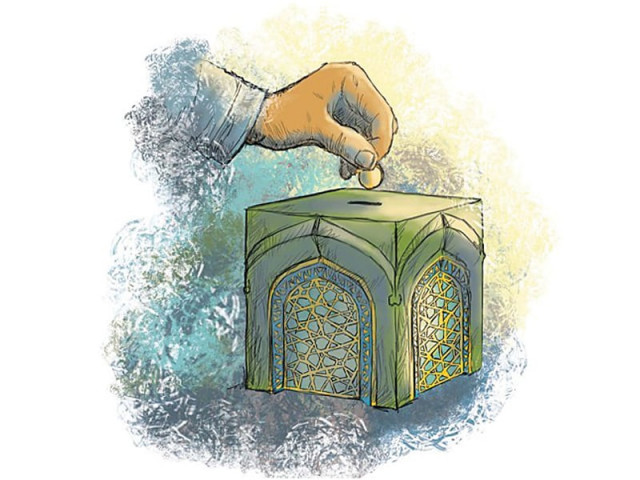Financing the Pakistani economy under Shariah law
As debate on deficit heats up, a look into Shariah guidelines for solutions may help.

As debate on deficit heats up, a look into Shariah guidelines for solutions may help. CREATIVE COMMONS
With the strengthening of democracy in Pakistan, calls for building an interest-free economic system are increasingly gaining traction. As the debate on public sector borrowing intensifies in the wake of the recent budget and the government’s successful conclusion of a US$5.3 billion facility from the International Monetary Fund (IMF), it would be helpful to look into Shariah guidelines for both spending and borrowing.
First let us look at the Shariah guidelines for expenditure. Monzer Kahf, an Islamic economist, lists three areas that early Islamic governments traditionally spent on: defence, judiciary and what was known as society’s management, under which internal social/tribal affairs and foreign relations were included. Social goods, such as health, education, drinking water were provided through Auqaf, or charitable trusts.
Therefore, according to Shariah, if Pakistan limits itself to the provision of defence and internal security, judicial sustenance, and the running of national politics and international relations, a lot of expenditure that the government incurs could either be shifted to the private sector or the not-for-profit sector.
This means two things: first, the government must stop subsidising certain goods and services. Subsidising electricity and power generation has resulted in the on-going energy crisis in the country, in addition to worsening the budget deficit and consequently increasing the public sector borrowing requirement.
Secondly, health, education and other social services like clean water, sanitation and similar activities must be organised through the third sector organisations, like Auqaf, cooperatives and trusts. This would mean the government must also not pay cash to support lower-income families and business unit. Pakistan Income Support Programme (PISP) does not result in any increase in the productive capacity in the economy. On the contrary, it puts added pressure on the budget.
Now let us look at what Shariah has to say about borrowing. Dr Umer Chapra, another Islamic economist, lists four reasons for excessive borrowing by previous and present-day Muslim states: corruption, price subsidies, a large and inefficient public sector, and defence expenditure. It seems all of these factors exist in Pakistan’s present economy, contributing to excessive public sector borrowing. Here are some steps Pakistan can take:
(a) The government must not borrow in order to provide goods and services that the private sector or the third sector has otherwise ability to produce and supply. Therefore, there is no point of keeping on borrowing to run such corporations like Pakistan Railway, Pakistan International Airlines, and similar corporations if the private sector has the ability to acquire and run them profitably and sustainably.
(b) Borrowing for meeting the non-developmental expenses of the government cannot be justified. If a government fails to collect enough taxes to meet its current expenses, it is certainly an incompetent authority that must not be allowed to borrow. If it is absolutely required to borrow, the ruling party or parties must borrow on their account, and must be made responsible to pay the debt back during their tenure.
(c) Borrowing from the central bank for meeting current expenses should not be allowed. It is an act of injustice on the present and future generations who must pay the price of subsequent increase in inflation.
(d) If it is absolutely necessary to borrow, it should not be on the basis of interest; instead the government must use Shariah compliant ways of raising money. One contemporary tool for public sector debt rising is through government/sovereign Sukuk. The most commonly used Sukuk allows the government to sell an asset to investors for a specific period and then buy it back at the end. Between the sale and buy-back, the government leases the asset and pays rentals to the investors. This is an asset-backed arrangement and therefore limits the ability of the government to borrow to the extent of the availability of a Shariah compliant asset.
(e) While it is perhaps too late for the government to use a Shariah compliant structure for borrowing from the IMF, it must consider in future using only those instruments and tools to borrow, which fulfil strict Shariah requirements in this respect.
The writer is an economist and a PhD from Cambridge University
Published in The Express Tribune, July 15th, 2013.
Like Business on Facebook, follow @TribuneBiz on Twitter to stay informed and join in the conversation.



















COMMENTS
Comments are moderated and generally will be posted if they are on-topic and not abusive.
For more information, please see our Comments FAQ